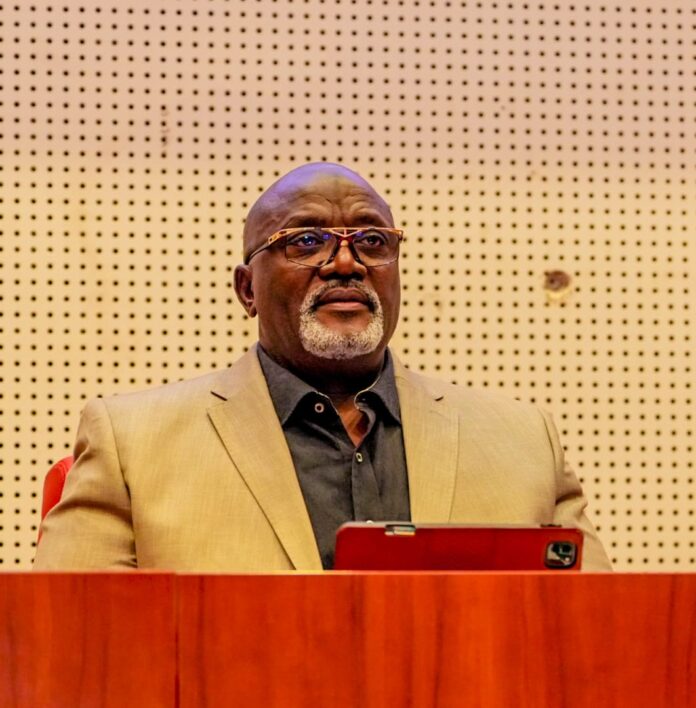Chairman of the House of Representatives Committee on Digital, Information Communication Technology and Cybersecurity, Hon. Adedeji Dhikrullahi Stanley Olajide, on Thursday, reaffirmed the National Assembly’s resolve to reposition Nigeria’s legal framework to meet the growing complexities of cybercrime and digital insecurity.
Speaking during the closing session of a Technical Meeting on Improving the Legal Framework for Cybercrime, held at Hearing Room 022, Senate New Building, National Assembly, Abuja, Hon. Olajide said the nation stands at a critical juncture in its digital evolution, one that demands urgent, inclusive and forward looking legal reforms.
The event, organised through a strategic collaboration between the United Nations Office on Drugs and Crime (UNODC), Global Programme on Cybercrime, the Senate of the Federal Republic of Nigeria and the Federal Ministry of Justice, brought together key policymakers, security stakeholders, technocrats and civil society actors to chart a new course for Nigeria’s cybersecurity governance.
According to the federal lawmaker, “Today, we have collectively reaffirmed the reality that cybercrime is no longer just a technical issue. It is a legal, economic, social and national security concern that requires urgent, informed and coordinated action.”
He stressed that cyber threats such as AI-generated disinformation, crypto-enabled fraud, data privacy violations and cross border cyber terrorism pose a clear and undeniable danger to Nigeria’s security, economy and democratic institutions. He noted that the current legal frameworks, particularly the Cybercrimes (Prohibition, Prevention, etc.) Act of 2015, are no longer adequate to address emerging realities.
“There is a pressing need to update, harmonise and future proof our laws in line with international conventions such as the Budapest Convention and the Malabo Convention,” Hon. Olajide stated.
He maintained that beyond drafting new laws, Nigeria must also invest in the enforcement mechanisms, including digital forensics, training, infrastructure and cross border cooperation, to give teeth to such legal reforms.
While commending the deliberations and presentations made during the one day session, the lawmaker reiterated the commitment of the House of Representatives committee on Digital, Information Communication Technology and Cybersecurity to ensuring that legislative instruments are not only technologically responsive but also rooted in human rights, transparency and digital inclusion.
The meeting is part of ongoing efforts to fortify Nigeria’s institutional and legal capacity to prevent, investigate and prosecute cybercrime, while aligning with global standards and best practices.






